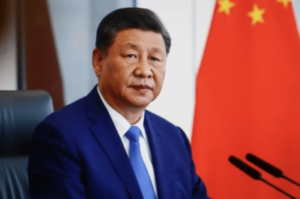$TSLA $LI $NIO
#Tesla #Zeekr #EV #China #AutonomousDriving #Tech #Stocks #Investing #ElectricVehicles #Automotive #Mobility #Market
Chinese electric car manufacturer Zeekr, a subsidiary of Geely, has announced the rollout of its advanced driver-assistance system (ADAS) to domestic customers at no additional cost. This move comes as the competitive landscape in China’s electric vehicle (EV) market intensifies, with companies racing to offer cutting-edge technology to attract customers. By providing its intelligent driving features for free, Zeekr is not only enhancing its brand appeal but also positioning itself as a serious contender against established players such as Tesla, Nio, and Li Auto. Industry analysts note that the strategy of offering ADAS for free could act as a significant differentiator in a market where autonomous driving capabilities are becoming a primary selling point for consumers.
Zeekr’s push into advanced driver-assistance systems underscores a broader trend in the automotive industry where carmakers increasingly leverage software and smart features to drive customer engagement. Tesla, for example, has monetized its autonomous driving capabilities through add-ons such as Full Self-Driving (FSD), which costs customers thousands of dollars. Zeekr’s decision to offer these features free of charge could create pricing pressure on competitors, forcing them to reconsider the cost structure of similar offerings. Moreover, this strategic move may signal Zeekr’s confidence in making up revenue through other channels, such as vehicle sales and after-market services, which could ultimately bolster its bottom line despite the initial loss of potential software revenue.
The Chinese EV market continues to be highly dynamic, with strong government incentives encouraging widespread adoption of electric vehicles. Companies such as Zeekr that integrate advanced autonomous driving features at no charge may gain a competitive edge among tech-savvy consumers who value smart capabilities. However, scaling and perfecting ADAS technology remains a capital-intensive task, and the long-term impact of free offerings on Zeekr’s profitability remains to be seen. Investors are watching closely to see how this strategy contributes to Zeekr’s market expansion and whether other EV makers in China and beyond will follow suit to remain competitive.
From a market perspective, Zeekr’s latest announcement could put pressure on rivals including Tesla, Nio, and Li Auto, which have been charging premiums for similar driver-assist technologies. Tesla, in particular, has generated significant profits from its FSD package, and any shift in consumer expectations toward free autonomous features could challenge that revenue stream. If more players adopt this strategy, it could reshape how automakers price and package smart technology in EVs. While Zeekr’s free ADAS move may initially come at a cost, it could boost adoption rates, enhance brand loyalty, and ultimately drive higher vehicle sales, making this a crucial development in the evolving EV sector.











Comments are closed.